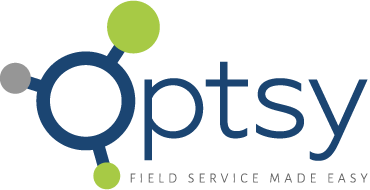Why Use Your Work Order Software for Mobile Technician Tracking
In field service businesses, work order software is typically used as a way to track appointments, revenue, and customer information. Some even use the metric of completed jobs vs. invoiced jobs, which can speak to how effective your billing processes are. (You don’t want to have a lot of completed jobs that haven’t been invoiced yet.)
There’s another aspect to work order software that’s important, however: It can teach you a lot about your technicians.
Let’s run through this quickly.
By looking at work order software data, there are numerous points of information about your technicians that you can determine. This starts with the basics, such as:
How many work orders are they completing per day?
How long does it seem to be taking them to close out an appointment?
What revenue are they generating per week?
This can lead you to a deeper question, such as:
If the number of appointments per day is low, does this have something to do with drive time, inventory issues, or the basic skill sets of the technicians?
Field service management software, or FSM software, is continually evolving. We just had a new release of our own software, and one of the major developments we put in was route optimization and scheduling functions. If you manage time properly — especially technician time, as those are the people in front of the customers — it’s easier to grow your business. We understand that, so we want to make sure anyone using our particular FSM software has that benefit.
In the coming years, you’ll see more FSOs — including small business FSOs — move toward this idea of “resource scheduling optimization,” or RSO.
The goal in RSO typically is to minimize driving time. Technicians need to be in front of customers working on their issues in order for the FSO to make money. The goal of the scheduling team — and in reality, the goal of the organization as a whole — is to fit in as many appointments per day as possible. That constitutes additional revenue.
Typically, RSO software will design the best daily schedule for each of your technicians. This could be based on a number of factors like:
Geography
Driving distance
Customer priority
Customer preferences
In the process of optimized scheduling through field service software, the pain points revealed by your work order management software can resolve themselves.
Most FSOs still aren’t at a place where they can work with more complicated RSO software, though. In fact, to understand exactly how work order management software — a more basic way of tracking different schedules — works, you need to understand the entire mobile ecosystem taking hold in FSOs right now. Why should you be mobile-first? How can you maximize your business that way? How does it play into fsm integration? And what will mobile-first fsm (field service management) give you in terms of data about your technicians?
We have put together an eBook on exactly this topic, which you can download now. Feel free to contact us with any questions.


